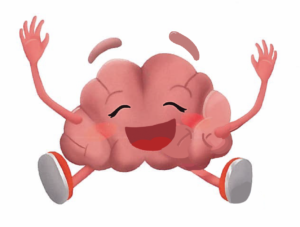
Frequently asked questions (FAQs)
Is my child eligible for the DEEP Ocean study?
Children (any gender) aged 4-5 years old who are fluent in English and free of any developmental delays or disorders and have not yet started kindergarten are eligible for this study. Parents can be non-native English speaking but must be proficient in English and primarily use English when speaking with their child at home.
What is fNIRS?
fNIRS is a safe method where we measure brain activity using light sensors placed on your child’s scalp. When a brain region is working hard, there is more oxygen in nearby blood. The fNIRS system can detect these changes in blood oxygen by measuring how much near-infrared light is absorbed by the sensors while your child does various tasks. This brain imaging technique is extremely safe and is commonly used in babies and young children. It does not involve radiation and the light emitted from the laser is very low intensity. If you’re interesting in learning more about fNIRS, here is a video: https://www.youtube.com/watch?v=RE_dyHxtKiI
What is LENA?
LENA (The Language Environment Analysis Digital Language Processor) is an audio recording device. LENA fits in a small pocket on a shirt that we will provide. Each LENA recorder can record up to 16 hours of continuous audio recording. The LENA records speech produced by, directed to, and occurring around your child during the recording period. The LENA device provides us with descriptive information about all this language like how many words your child produces and hears, how long they spend in conversation with others, and how many different words they hear and produce. You will be asked to have your child wear an audio recording device (LENA) for 2 (non-school) days. What is the difference between the two sessions of the study? Do I need to attend both?
What is the difference between the two sessions of the study? Do I need to attend both?
Yes, you do need to attend both! Session one is virtual over zoom, so you can do it right from home! It should take between 2-2.5 hours to complete and it entails answering some survey questions, reading a book with your child, and your child playing some fun interactive computer games with our researchers! The second session will take place at our lab in Burton Hall on the Smith College campus (directions provided under the “Visit Us” tab on the website). This session will consist of 2 parts: a functional near infrared spectroscopy (fNIRS) scan of your child’s brain, which is a safe method to measure children’s brain activity using light sensors, and some ipad games. Session 2 should take 2 hours to complete (1 hour for the fNIRS scan, 24 minutes for the ipad games, and 36 minutes for setup).
It is recommended that you return for 3 additional study study sessions over the next 12-18 months. Information about these study sessions will be provided after completion of session 2.
Do I get compensated for participating in this study?
For session 1, you will be compensated $30 for completing the study and your child will be compensated $30 as well. For session 2 (as well as sessions 3, 4, and/or 5 if you choose to participate), your child will be compensated $60 for completing each study session and you will be compensated $25. All compensation will be in the form of an amazon gift card.
What are the benefits of participating in this study?
You’ll get to contribute to important research targeted at understanding how the home environment impacts brain and cognitive development in children and what this means for academic outcomes down the line.
What if I can’t make it for a study session on the Smith College Campus in Northampton?
If it’s more convenient for you, we also can conduct our study at the Umass Center at Springfield.
What if I don’t have reliable wifi at home?
If you don’t have reliable wifi at home, you can come to our lab in Burton Hall at Smith College to complete Session 1 of the study.
